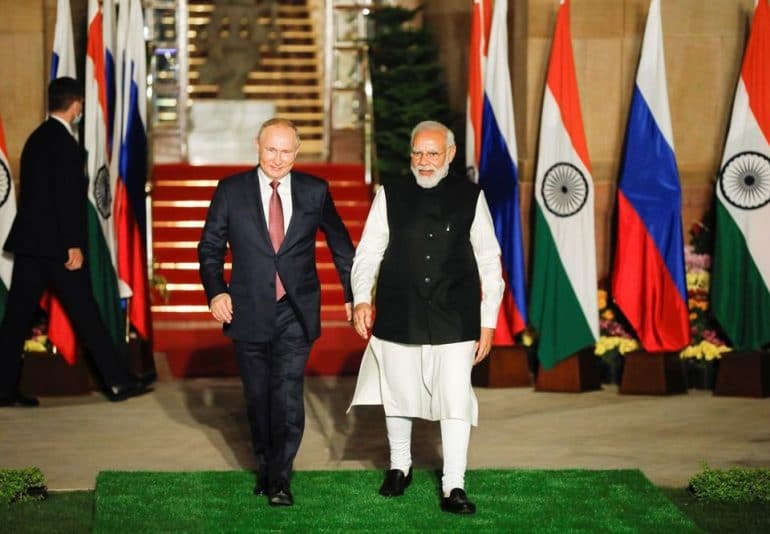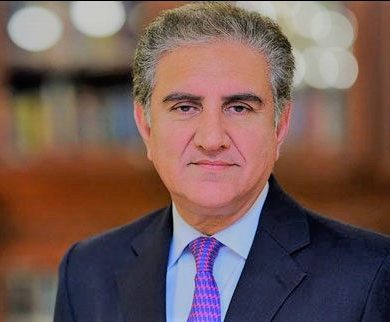During President Vladimir Putin’s visit to New Delhi for meetings with Prime Minister Narendra Modi on Monday (6th December), the two countries signed plenty of trade and armaments agreements, including one that will see India manufacturing more than 600,000 Kalashnikov assault guns.
Putin traveled to India alongside Russia’s defense and foreign ministries for a visit that saw the two nations strengthen their ties by signing a military and technological cooperation contract that would last until 2031, as well as a vow to increase yearly trade to $30 billion (PKR 5.286 trillion) by 2025.
The Russian president’s visit to India comes amid a deterioration in ties between Russia and the United States, which is also a key Indian ally and has expressed reservations about increased military cooperation between Moscow and New Delhi.
According to a joint statement issued following the talks, Russia and India “reiterated their intention to strengthen defense cooperation, including joint development and production of military equipment.”
In addition to the agreement for India to manufacture AK-203 assault rifles, Russia stated that it would continue to provide S-400 air defense missile systems.
Harsh Vardhan Shringla, India’s foreign secretary, said the two countries had signed 28 investment agreements, including agreements in steel, shipbuilding, coal, and energy.
He also stated that a 2018 contract for the S-400 missile systems was in the works. “Supplies started this month and will continue to happen,” he stated of the S-400.
The agreement with Moscow puts India in danger of US sanctions under a 2017 law aimed at discouraging countries from purchasing Russian military gear. Rosneft, a Russian oil corporation, said it has reached a deal with Indian Oil to provide up to 2 million tonnes of oil to the country by the end of 2022.
Among other agreements, the two countries inked a memorandum of understanding for Russia to give India an uninterrupted supply of coal to support its steel production. President Vladimir Putin stayed in the Indian capital for five hours, according to Muhammad Saleh Zaafir.
India emphasized its ambition of being Russia’s defense development and production partner, rather than merely a buyer, and it brought up the Ladakh conflict, telling Moscow that “India prefers partners that are sensitive and attentive to its expectations and requirements.”
“Our meeting today will strengthen our Special and Privy Strategic Partnership,” PM Modi stated, referring to Russian President Vladimir Putin as a “friend.” Military and military-technical cooperation has long been a basis of the “Special and Privileged Strategic Partnership between Russia and India,” according to a joint statement released after the conference.
As per the released statement, “Responding to India’s quest for self-sufficiency, the partnership is reorienting to joint research and development, co-development and joint production of advanced defense technology and systems.”
The much-touted Reciprocal Exchange of Logistics (RELOS) agreement was not signed because there are still some concerns to be worked out. Both sides reviewed the method for sending and distributing humanitarian aid and assistance in Afghanistan, but there was no debate about legitimizing the Taliban rule there.



